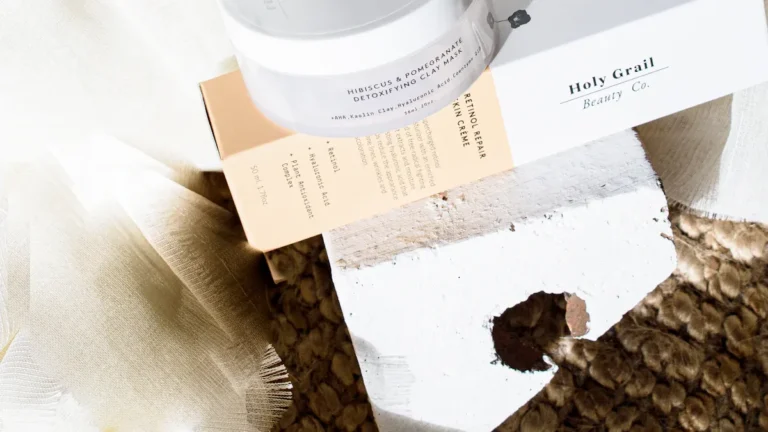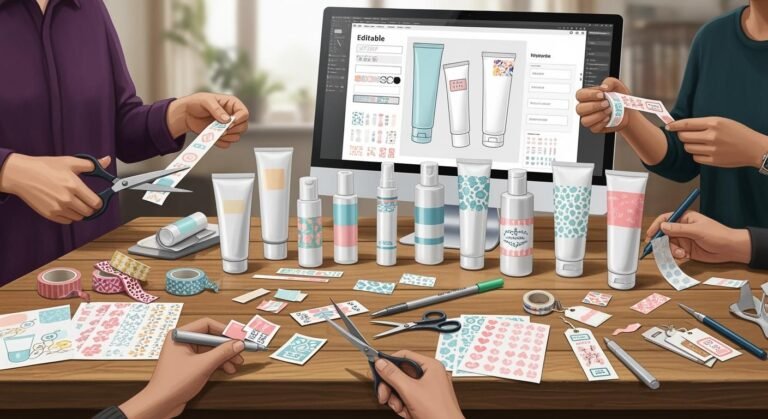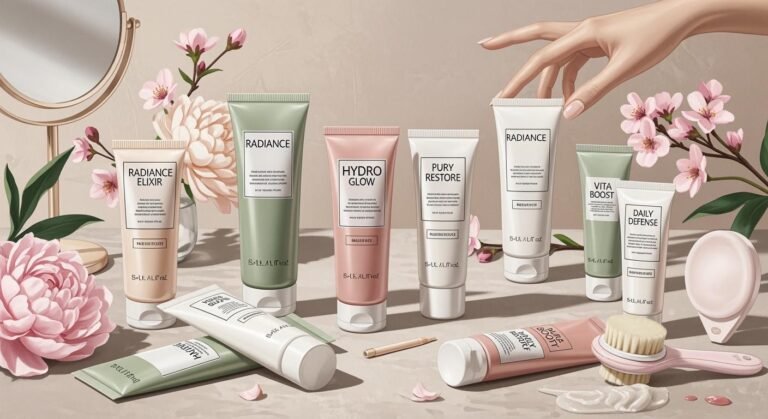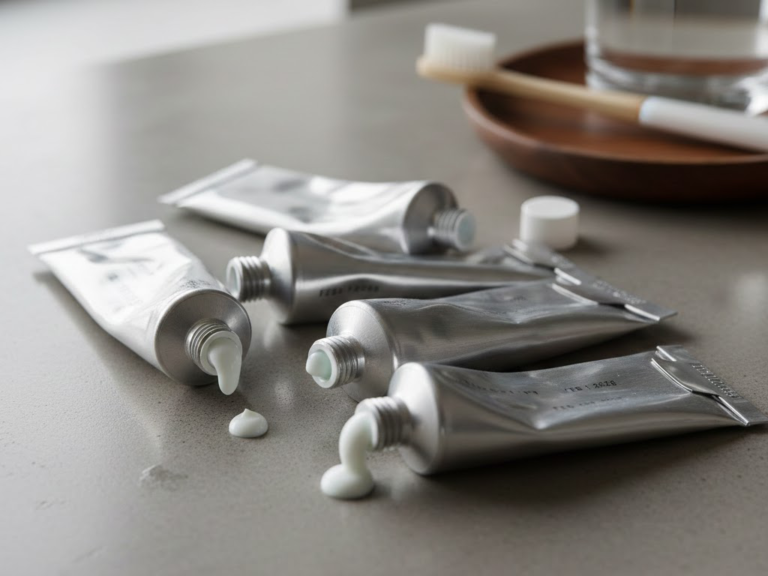How Is AI Changing the Future of Cosmetic Tube Design?
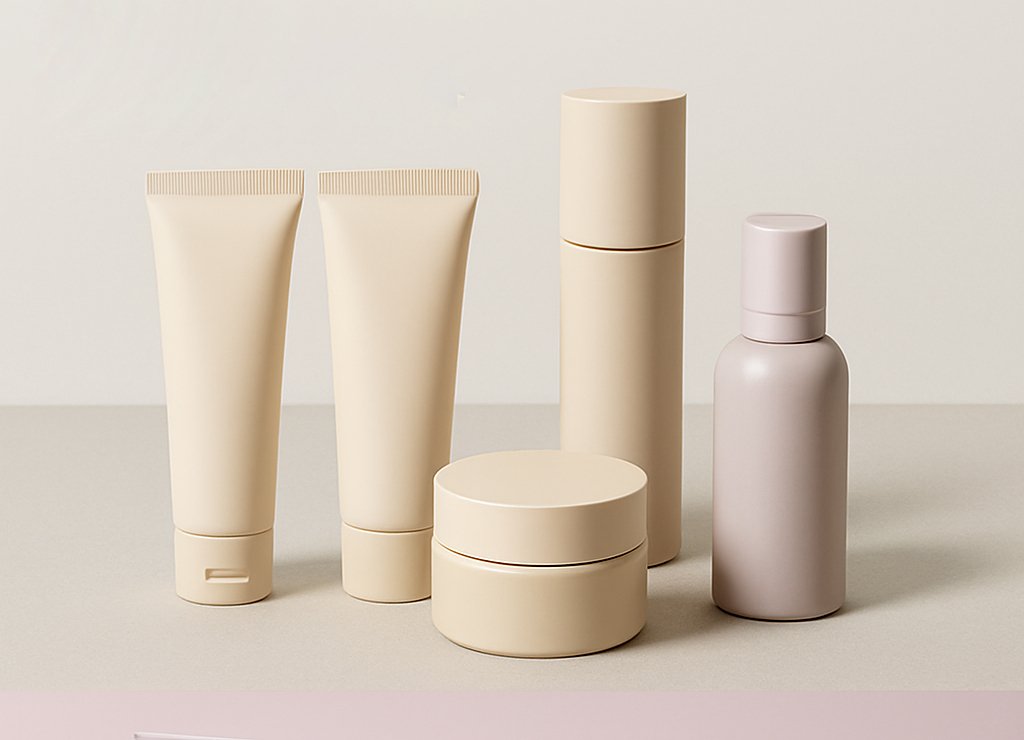
In the fast-paced world of beauty and cosmetics, packaging has always been a crucial element. It’s the first point of contact with consumers and often determines whether a product stands out on the shelf or gets lost in the crowd. But now, there’s a new twist in cosmetic packaging that is changing the game entirely: AI-powered cosmetic tube design. From creating eye-catching cosmetic tube designs to optimizing production, AI is bringing efficiency, customization, and creativity to the forefront.
This article will explore how AI is transforming cosmetic tube themes, cosmetic tube templates, and the broader landscape of cosmetic packaging design AI. Let’s dive into the future of cosmetic tube AI design and understand its growing influence.
The Rise of AI in Cosmetic Packaging
What is AI Cosmetic Tube Design?
At its core, AI cosmetic tube design refers to using artificial intelligence to streamline, personalize, and enhance the process of designing cosmetic tubes. AI algorithms analyze data from past designs, consumer preferences, and industry trends to suggest new designs, optimize materials, and improve functionality. AI isn’t just about automating the process—it’s about creating designs that resonate with the target audience while offering practical benefits like sustainability and cost-effectiveness.
AI in cosmetic packaging design AI is evolving at an exponential rate. It doesn’t just create cosmetic tube templates but also customizes the packaging based on real-time market demands and consumer behavior.
The Advantages of AI in Cosmetic Tube Design
- Faster Design Iteration: AI allows designers to generate multiple design concepts in a fraction of the time it would take manually.
- Personalization: With AI, brands can create packaging tailored to specific consumer preferences, taking into account skin types, beauty trends, and even regional differences.
- Sustainability: AI can optimize packaging materials to reduce waste and environmental impact, a growing concern in the beauty industry.
- Cost Efficiency: Through AI, brands can identify the most cost-effective solutions without sacrificing quality or design integrity.
Key Trends in Cosmetic Tube AI Design
1. Data-Driven Design Innovation
One of the most exciting aspects of AI cosmetic tube design is the ability to analyze massive amounts of data. Whether it’s consumer feedback, social media trends, or online shopping behaviors, AI can sift through this data and extract valuable insights. These insights help designers create cosmetic tube themes that resonate with target markets. In this sense, AI isn’t just a tool for speed—it’s a tool for relevance.
2. Dynamic Customization and Personalization
The beauty industry is all about personalization, and AI is taking this to new heights. Imagine a beauty brand that knows exactly what colors, textures, and materials appeal to a specific demographic. Using machine learning algorithms, cosmetic tube templates can be adjusted for individual preferences, from the tube’s shape to its color scheme. AI enables manufacturers to predict consumer needs, offering dynamic packaging solutions that evolve with trends.
3. Sustainable and Eco-Friendly Materials
Sustainability in packaging is no longer optional—it’s a must. AI helps brands identify the most eco-friendly materials that still maintain the quality and durability required for cosmetic packaging. For instance, AI can simulate how different packaging materials react to various conditions, ensuring the cosmetic tube design AI meets both aesthetic and environmental standards.
4. Interactive Packaging
AI-powered packaging isn’t limited to the exterior design of the cosmetic tube. It also enhances the interaction between the product and the consumer. Interactive elements such as QR codes, augmented reality (AR) features, or even AI-driven notifications can be integrated into the packaging design, adding an innovative layer to the customer experience.
How AI Is Shaping the Future of Cosmetic Tube Design at Xinfly Packaging
Xinfly Packaging, a leader in innovative packaging solutions, has already embraced AI to enhance its cosmetic packaging design AI processes. By leveraging cutting-edge artificial intelligence technologies, Xinfly is creating cosmetic tube designs that are not only visually stunning but also functionally superior.
Xinfly’s AI-Driven Design Process
Xinfly’s cosmetic tube AI design process starts with analyzing market trends and consumer behavior patterns. The company uses advanced machine learning algorithms to predict future trends, which helps in crafting packaging that anticipates consumer desires. Whether it’s a minimalist design for a skincare brand or an extravagant tube for luxury cosmetics, Xinfly ensures that every design is tailored to the brand’s identity and audience preferences.
Case Study: A Successful Collaboration with a Luxury Skincare Brand
A recent collaboration between Xinfly Packaging and a top-tier skincare brand showcases the effectiveness of AI cosmetic tube design. The challenge was to create packaging that conveyed both luxury and sustainability. Xinfly used AI to analyze the brand’s target audience, competitor designs, and industry trends. The result? A cosmetic tube design AI that was sleek, modern, and crafted from biodegradable materials.
Through AI, the brand was able to reduce production costs by 15% while increasing consumer satisfaction due to the tube’s user-friendly design and eco-friendly materials. This case study is a testament to how AI can shape not only the visual appeal of cosmetic packaging but also its practical benefits.
The Process of Developing AI-Driven Cosmetic Tube Designs
Step 1: Ideation and Inspiration Gathering
The first stage of the cosmetic tube design AI process is gathering inspiration. AI tools analyze the latest design trends, consumer preferences, and social media activity to provide designers with an array of potential themes. Using this data, designers can quickly generate ideas that align with what customers are looking for.
Step 2: Concept Creation and Refinement
Once the inspiration is gathered, AI starts creating the initial design concepts. This phase often involves creating cosmetic tube templates with different colors, materials, and shapes. AI refines these designs based on parameters such as market trends, production costs, and functionality.
Step 3: Testing and Simulation
Before a design goes into production, AI can run simulations to test the durability, usability, and appeal of the packaging. For instance, the AI can simulate how the tube reacts under different environmental conditions, ensuring that it will withstand transportation and storage without losing its aesthetic qualities.
Step 4: Final Approval and Production
Once a design is tested and approved, AI helps optimize the production process by identifying the most efficient manufacturing methods. Whether it’s selecting the right material or streamlining the production line, AI ensures that the final product is both cost-effective and high-quality.
The Role of AI in Cosmetic Tube Branding
Creating Distinctive Brand Identities
Cosmetic tube design is more than just about looking good—it’s about telling a brand’s story. With AI cosmetic packaging design, brands can create unique, memorable packaging that speaks to their identity. From choosing the right textures to incorporating logo designs, AI helps brands achieve their desired image while maintaining functionality.
Consistency Across Product Lines
Another challenge brands face is maintaining consistency across their entire product line. With AI, brands can easily create a unified aesthetic across different products, whether it’s skincare, makeup, or haircare, without sacrificing creativity.
Challenges in AI Cosmetic Tube Design
While AI offers numerous advantages, there are challenges to be aware of. For one, the technology is still evolving, meaning designers and manufacturers need to stay on top of AI’s capabilities to ensure they’re using it to its fullest potential. Furthermore, there are concerns about creativity being stifled by over-reliance on data-driven decisions. However, as AI technology matures, it’s likely that these challenges will be addressed.
Conclusion: The Future of AI in Cosmetic Tube Design
AI is undoubtedly reshaping the future of cosmetic tube designs. From creating custom cosmetic tube themes to enhancing production processes, AI is empowering brands to be more innovative, efficient, and consumer-focused. As AI continues to evolve, the possibilities for cosmetic packaging design AI are endless. It’s clear that this technology will only grow in importance, providing endless opportunities for brands to engage with their audiences in new and exciting ways.
AI & The Future of Cosmetic Tube Design – Frequently Asked Questions
From data-driven concepts and sustainable materials to print accuracy, e-commerce visuals, and rapid sampling—see how AI transforms tubes across PE/COEX/PBL/ABL platforms.
1) What is AI changing first in cosmetic tube design?
2) How does AI improve audience relevance?
3) Can AI guide sustainable material choices?
4) Does AI help with barrier selection and formula protection?
5) What about color accuracy on soft-touch matte and small tubes?
6) Can AI predict which design will convert better online?
7) How does AI reduce leaks and transit damage risk?
8) Does AI change how we use finishes like foil and spot-UV?
9) What files are output for manufacturing?
10) Will AI replace packaging designers or engineers?
11) How does AI affect MOQs and timelines?
12) What about compliance and on-pack claims?
13) How is AI influencing design collaboration?
14) Any pitfalls when adopting AI for tubes?
15) Why partner with Xinfly Packaging for AI-forward projects?
Ready to customize your packaging? Contact our team for detailed pricing, MOQ flexibility, and fast production samples.



